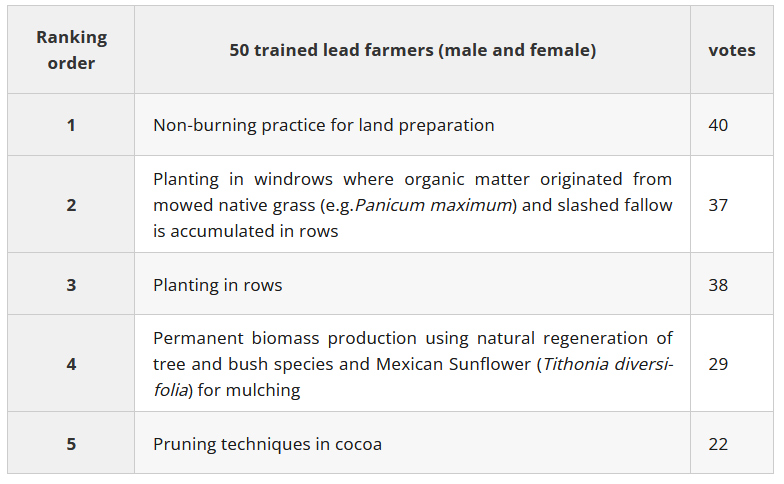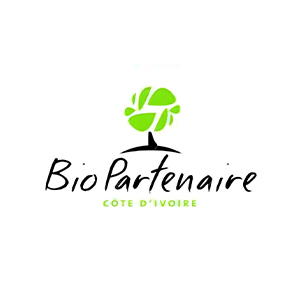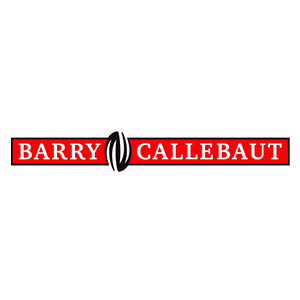From 2014 to 2015 ECOTOP conducted specific training for women on behalf of “Biopartenaire” and 2016/17 on behalf of Barry Callebaut in the surroundings of Yamoussoukro, Diegonéfla, Ouragahio, Duékoué and Lacotá. Women are mostly in charge of food production and responsable for new cocoa plantations during the first 3 years, when food crops are cultivated between the young cocoa trees.
Land preparation is commonly done by slash and burn of savannah like areas or young fellow secondary forest or bushland. Therfore the areas cultivated are mostly degraded and crops are under a high presure of infestation by weeds.
A survey conducted at the end of a 4-year Dynamic Agroforestry project with cocoa farmers in Ivory Coast in 2015 about the most important innovations learnt during the project phase is as followed:
Chart 1: Ranking order of innovation techniques introduced during a 4-year Dynamic Agroforestry project in Ivory Coast (multiple voting)


Ut enim ad minima veniam, quis nostrum exercitationem ullam corporis suscipit laboriosam, nisi ut aliquid ex ea commodi consequatur? Quis autem vel eum iure reprehenderit qui in ea voluptate velit esse quam nihil molestiae consequatur, vel illum qui dolorem eum fugiat quo voluptas nulla pariatur. Neque porro quisquam est, qui dolorem ipsum quia dolor sit amet, consectetur, adipisci velit, sed quia non numquam eius modi tempora incidunt ut labore et dolore magnam aliquam quaerat voluptatem.

Barry Callebaut is among the world’s largest cocoa producers and grinders, with an average annual production of 1.7 million tonnes of cocoa. It was created in 1996 through the merging of the Belgian chocolate producer Callebaut and the French company Cacao Barry. It is currently based in Zürich, Switzerland, and operates in over 30 countries worldwide. It was created in its present form by Klaus Johann Jacobs.
Its customers include multinational and national branded consumer goods manufacturers and artisanal users of chocolate (chocolatiers, pastry chefs, bakeries, and caterers).